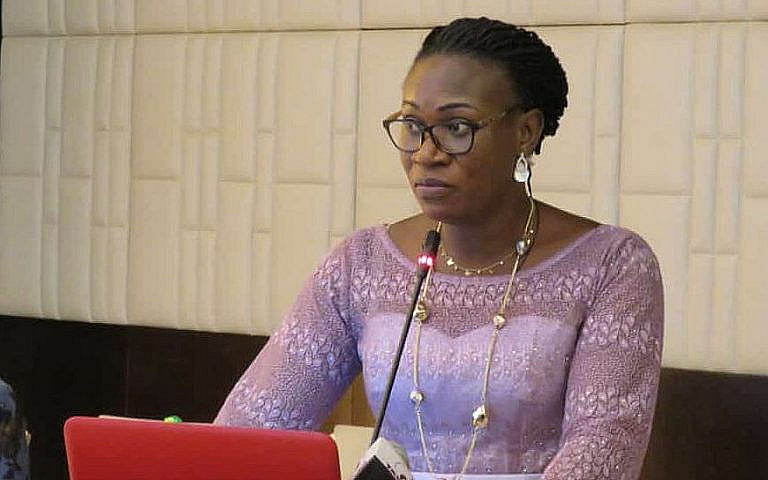“The commitment of Sahelian women is a great strength”
Sabine Bouda Sidpawalemdé is a sociologist and gender adviser. She is also part of the national coordination of the G5 Sahel Women’s Platform in Burkina Faso. In this interview she discusses the representation of women in the discussions on peace and security in the Sahel.

What is the situation regarding the representation of women at the peace and security table in the Sahel?
Women are increasingly present around the discussion table on the theme of women, peace and security. Furthermore, since the adoption of Resolution 1325, women’s participation has increased as this resolution commits states to promote women’s representation on peace and security issues.
What solutions would you propose to make the implementation of Resolution 1325 in the Sahel more systematic?
One of the solutions would be to make the women’s promotion associations more operational. For example, with the creation of the G5 Sahel Women’s Platform, there has been a renewed commitment through the national coordination groups in the countries.
As part of the operationalisation of these associations and platforms, it is necessary to support them with financial resources, capacity building and human resources to enable these entities to systematise Resolution 1325. Women have the will to work, but if this is not accompanied by adequate measures and tools, it is difficult for them to be operational on the ground, to take concrete actions with repercussions on the representativeness of women in peace and security.
This resolution can only become more systematic if there is good political will on the part of the G5 Sahel member states. Support is needed at the highest level for the implementation of the women, peace and security agenda.
In the Sahel today, what strengths and resources do women represent for building peace?
The commitment of Sahelian women is a great strength. Women today are informed, they are aware, they are educated and even those who are not educated, they seek information. So we see a great willingness and commitment to capitalise.
On the issue of peace and security, there are more and more frameworks bringing together the different countries of the Sahel. This enables us to pool our strengths, work in synergy, inform each other, exchange information and equip ourselves to better respond to the challenges.
The other strength of these women’s frameworks and organisations is that they integrate women into decision-making bodies. Progress will come through women’s voices coming together to carry change higher and stronger.
Is there a synergy, an organisation bringing together women from Sahelian countries to move forward on peace issues?
The G5 Sahel women’s platform is headed by a regional coordination and in each country there is a national coordination. Each year, a General Assembly allows the different regional coordination groups to meet to exchange on the challenges encountered, share experiences and good practices. This makes it possible to draw inspiration from each other’s good practices in order to make progress in the fight against insecurity, the representativeness of women in bodies, and in the women, peace and security agenda.
I mention this instance as an example because it is the one I know best, but I am sure there are others.
What would you advocate for Sahelian women?
I encourage our authorities to have good peace and security policies. And this policy must be accompanied by a willingness to implement it, by allowing women to participate in the various decision-making bodies at national or even regional level.
The lack of resources among women is also a problem that needs to be addressed, by putting in place adequate resources for the proper functioning of the various women’s projects and activities. And to create places, settings that allow women to meet more.
I also wonder how to collectively bring to the decision-making tables and make visible those women’s organisations that are doing good work but are far from the capitals. These women work day and night, the first to get up and the last to go to bed, but they are not visible, how to recognise the work, what to do to make them participate in the discussion tables and put them forward?
Interview by Carmelle Nezerwe
Go further

